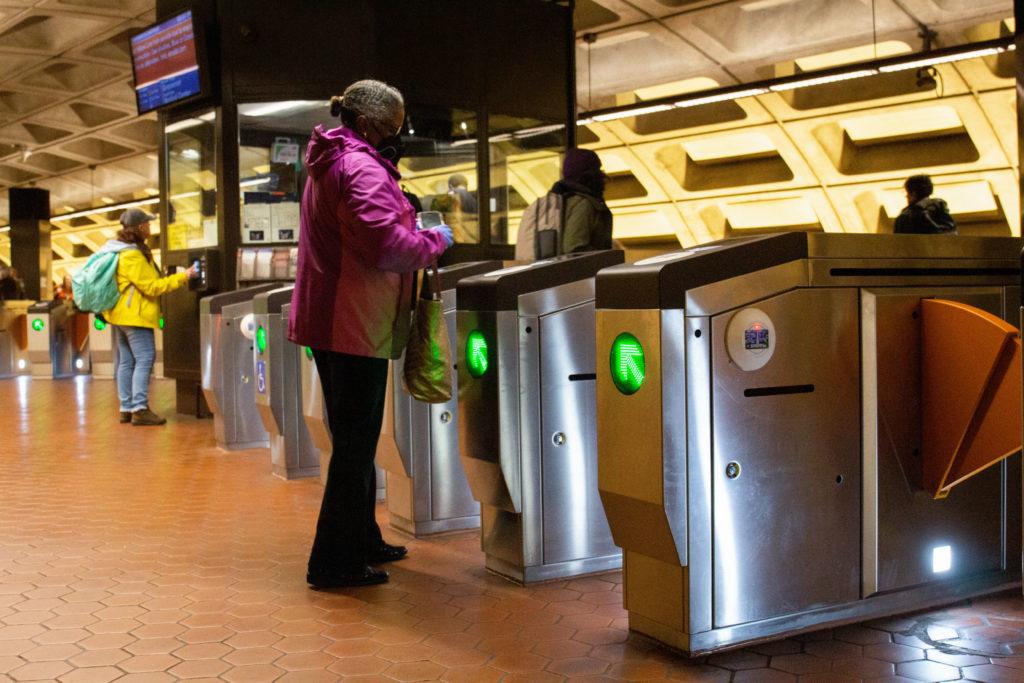The Washington Metropolitan Area Transit Authority will begin a campaign warning fare evaders of fines before beginning an aggressive ticketing campaign in November, officials announced in a release Tuesday.
WMATA began displaying digital warning signs in Metro stations Tuesday, urging riders to pay their fare and warning them that Metro Transit Police Officers could fine riders if they don’t pay. The digital warnings, which also depict how much each fine could cost evaders in D.C., Maryland and Virginia, will run for two weeks before MTPD officers and Metro workers begin handing out fliers to fare evaders with the same warnings, and in November, MTPD officers will begin handing out fines to anyone not paying their Metro fare.
“Metro has a message for fare evaders: operating buses and trains isn’t free,” the release states. “Customers riding Metrobus and Metrorail are required to pay fares and will be warned accordingly.”
The D.C. council made fare evasion a civil offense in 2019, and any fare evaders caught in the District could pay up to $50 when fines begin to be handed out in November. In Maryland and Virginia, where fare evasion is a criminal offense, fines handed out could cost evaders up to $100.
WMATA estimates that it lost $40 million in revenue to fare evasion in 2022, based on pre-pandemic Metrobus and Metrorail averages and think that a new “faregate technology,” which has been installed in various stations – including Foggy Bottom’s Metro station – will help them gather more accurate data on revenue lost to fare evasion, according to the release.
“The region needs to decide what we want Metro to be, and fare policy should be part of the conversation,” WMATA General Manager and Chief Executive Officer Randy Clarke said in the release. “Many people have mentioned going to a fare-free model, but fare-free does not mean free. There are costs associated with running the community’s transit system.”










